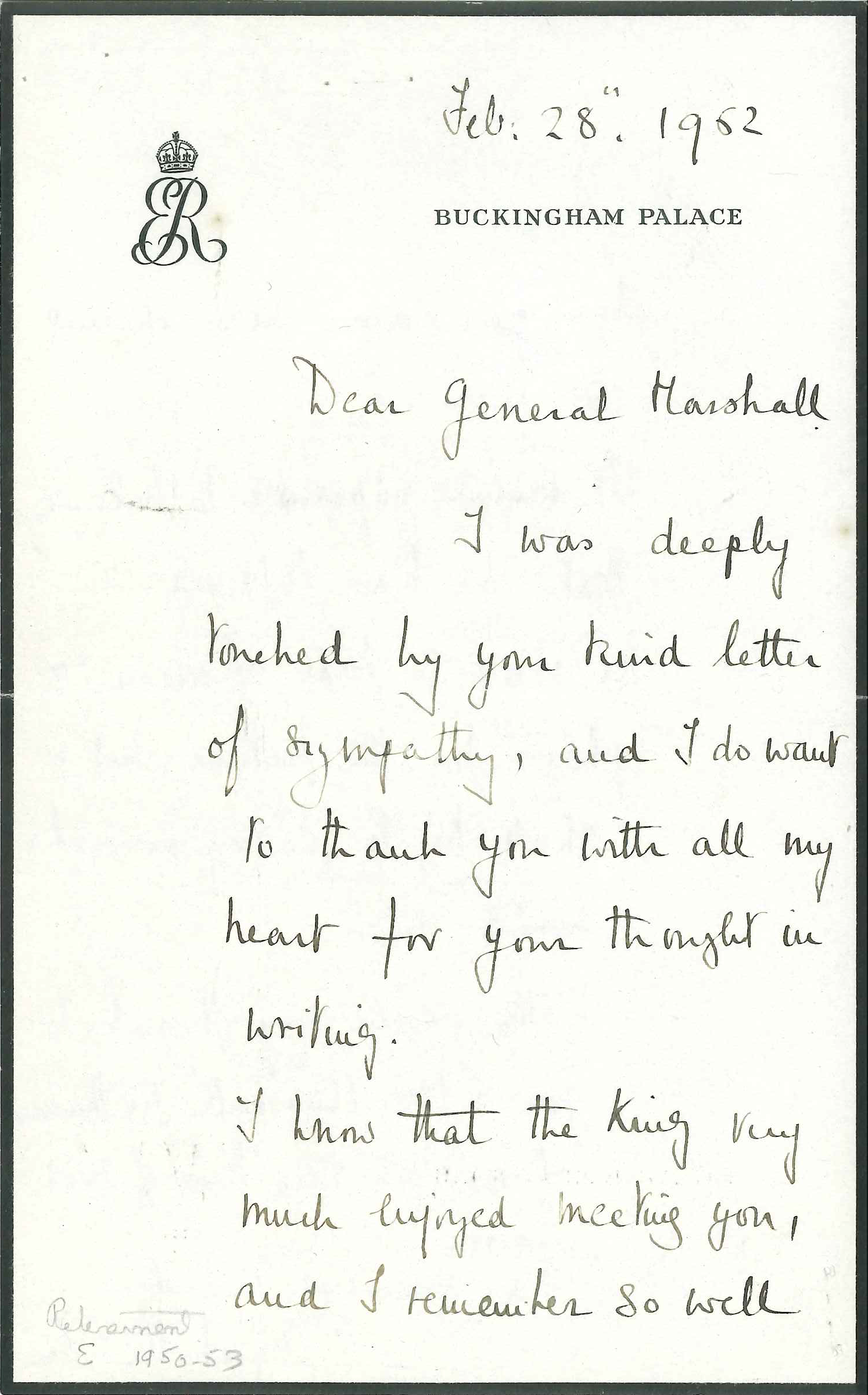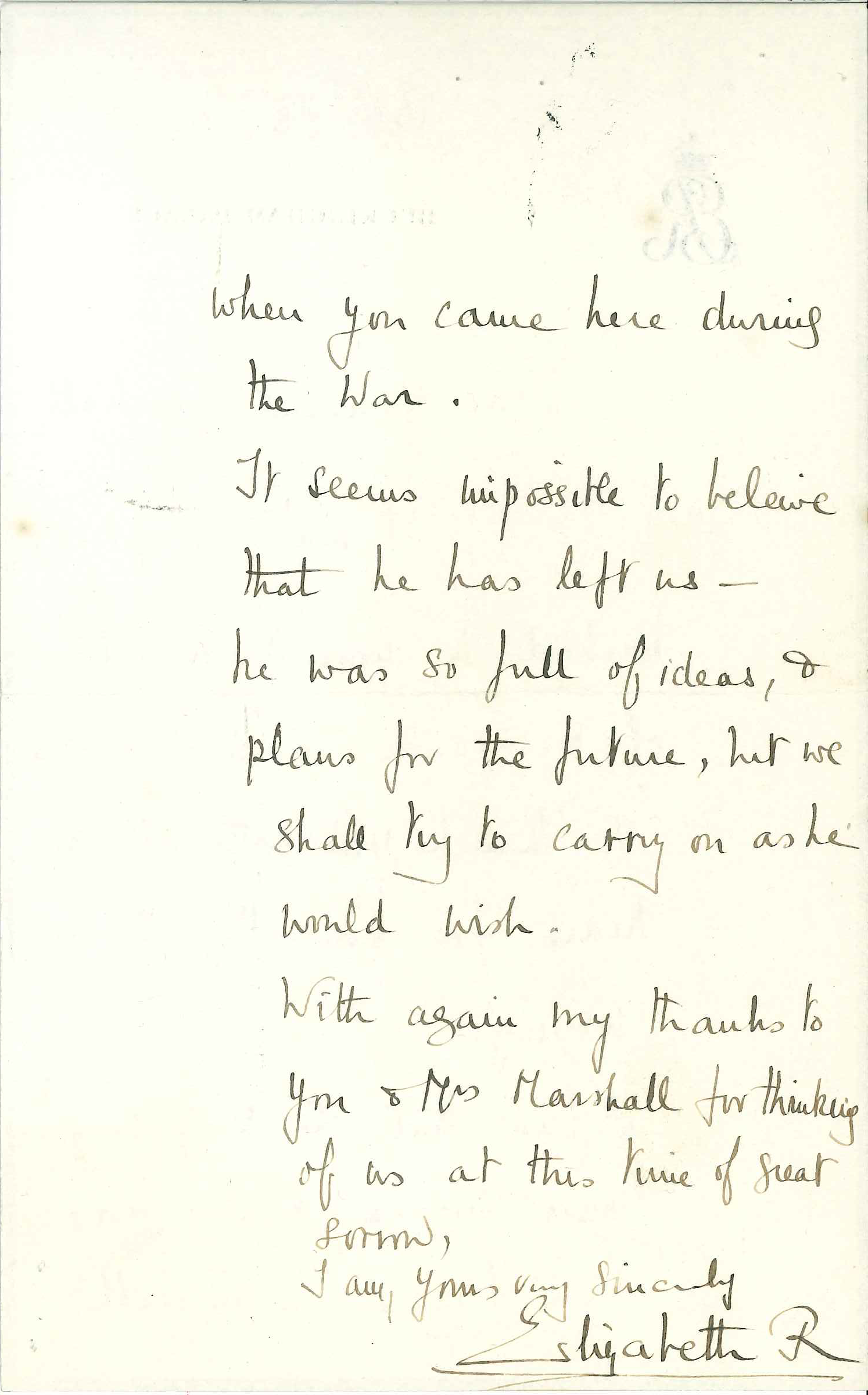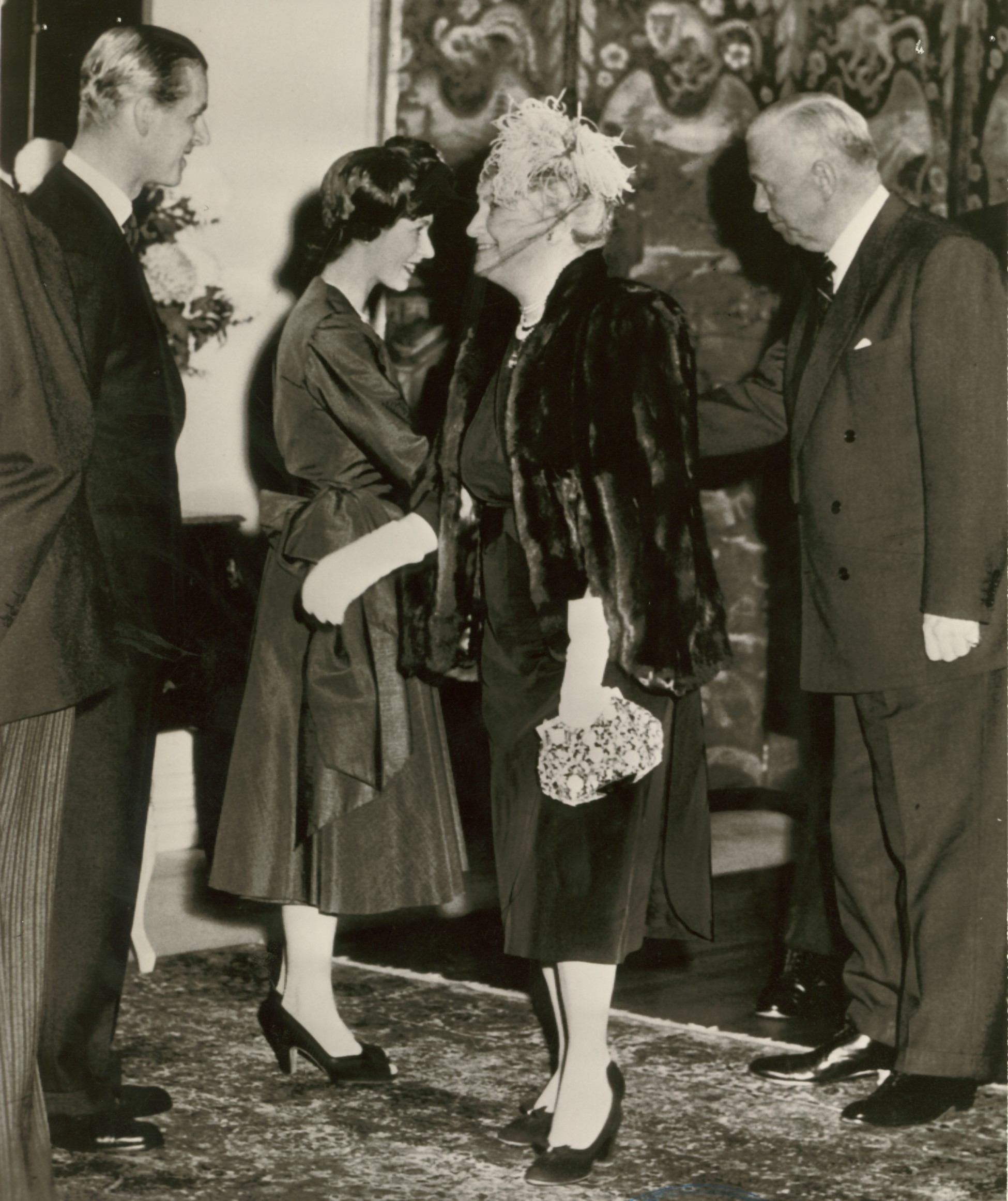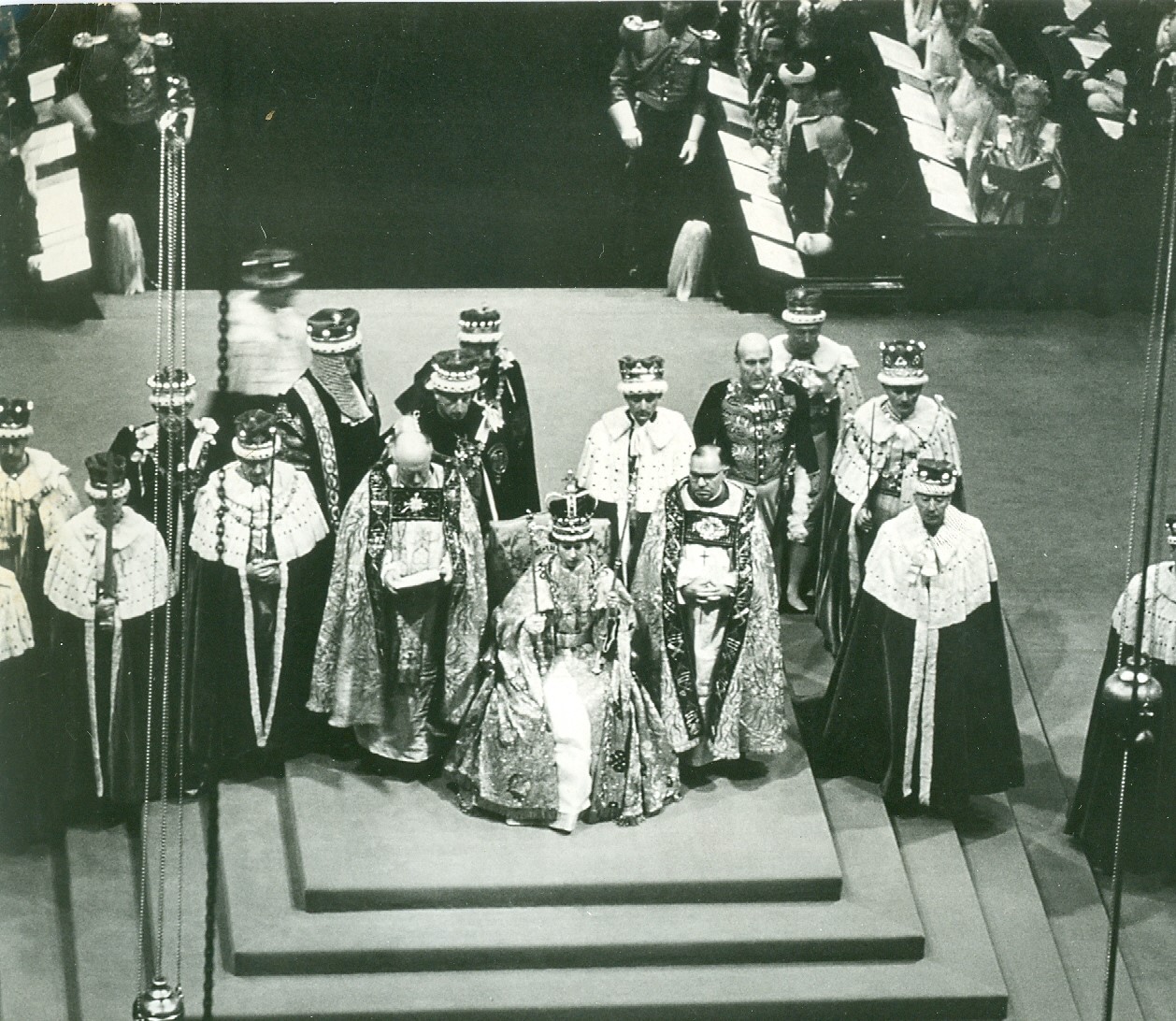"Thank you with all my heart"
As the world mourns the passing of Queen Elizabeth II, the longest-reigning monarch in British history, the Marshall Foundation would like to take the opportunity to highlight an interesting piece of correspondence between her and General Marshall.
George Marshall met with PM Winston Churchill and the British chiefs of staff in London frequently during WWII. During one of these visits, he was introduced to the royal family, including Princess Elizabeth. In an interview with biographer Forrest C. Pogue, Marshall recounted her visit to Washington, D.C., in 1951:
I had a discussion about. . .the Conan Doyle Sir Nigel stories. . .with Queen Elizabeth just shortly after she was married as a princess. I was having lunch with the family.
Pogue, Interviews and Reminiscences, 165
King George VI’s health declined throughout 1951 until his passing on February 6, 1952. Marshall sent the new queen a letter of condolence. She, in turn, sent a handwritten thank you note, dated February 28:
Dear General Marshall:
I was deeply touched by your kind letter of sympathy, and I do want to thank you with all my heart for your thought in writing.
I know that the King very much enjoyed meeting you, and I remember so well when you came here during the war.
It seems impossible to believe that he has left us-he was so full of ideas, of plans for the future, but we shall try to carry on as he would wish.
With again my thanks to you and Mrs. Marshall for thinking of us at this time of great sorrows.
I am, yours very sincerely,
Elizabeth R.


Eisenhower sent Marshall to represent the United States at Queen Elizabeth II’s coronation on June 2, 1952. In a letter to Harry S. Truman dated September 8, 1953, Marshall recounted his experience at the ceremony:
I received a very gracious and warm welcome on all occasions and was particularly favored in the seating at the great banquets—Buckingham Palace and Lancaster House. Only one member of the Delegation—myself—was invited to these affairs. The banquet at Buckingham Palace was the most brilliant gathering I have ever seen. The Queen’s party of about thirty were seated at an oval table in the center of the hall, surrounded by tables of twelve. I was included at her table with the Princess Alice as my partner, and was, I think, the only commoner so honored. I sat between the Princess and the Queen Mother, and two chairs removed from the Queen.
. . .Katherine had been in such shape I thought she couldn’t make the trip, but she did and came back in good shape. They made every arrangement possible for her convenience and comfort there. As a matter of fact, after the Queen had passed in the parade, Katherine stepped back into Lancaster House and had tea and watched the Abbey ceremony on television. Then, my British Military Aide, General Hollis, got special permission to take her back along the parade route—which was completely closed off otherwise—with three motorcyclists so that she was able to eat her lunch at the hotel, get a two-hour nap, and then from the window of her sitting room see the parade on its return. I got home at five o’clock, but had lunch at the annex to the Abbey and had a very delightful partner—the young bride and daughter of King Leopold. She is very attractive looking and has a head on her like Frederika in Athens. I sat at Salisbury’s table there, and on my left was the Emperor-King of the Himalayas—that is a pretty big one for you to swallow out in Missouri.
. . .I am giving you lots of little bits here, but Mrs. Truman may be entertained, if you are not.
As to the ceremonies, the pageantry was magnificent and I can’t attempt to describe it. However, I thought the Buckingham Palace banquet was the most brilliant occasion I have ever seen. Incidentally, there Churchill got hold of me when we took our leave of the ladies and had me sit with him for quite a long time and had me participate with him in the drinks they put on a small table alongside him. Before that, the Duke of Edinburgh and the Duke of Gloucester had talked to me for about twenty minutes after we left the ladies. I have made a very poor effort of describing the magnificent occasion, and I hope I have not bored you.
With my affectionate regards and great respect, and warm regards to Mrs. Truman and Margaret,
George C. Marshall
More information about Marshall’s attendance at Elizabeth II’s coronation can be found in this article by Tom Bowers.
Glen J. Carpenter is Director of Communications and Multimedia. He majored in American studies at the University of Maryland, Baltimore County, and the University of Wyoming, focusing on 20th century consumer culture, horror films, and music. He lives in Roanoke, Virginia.


